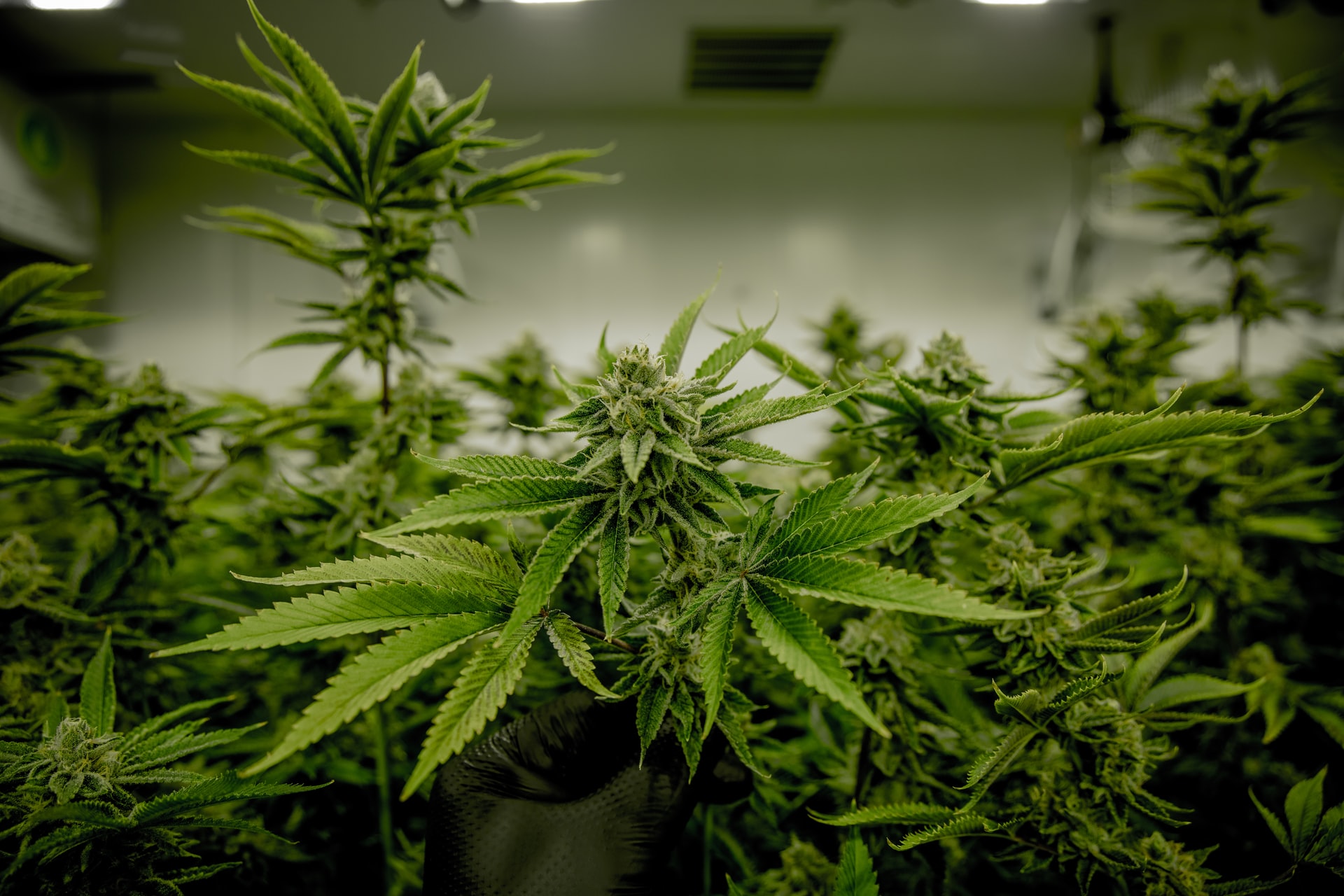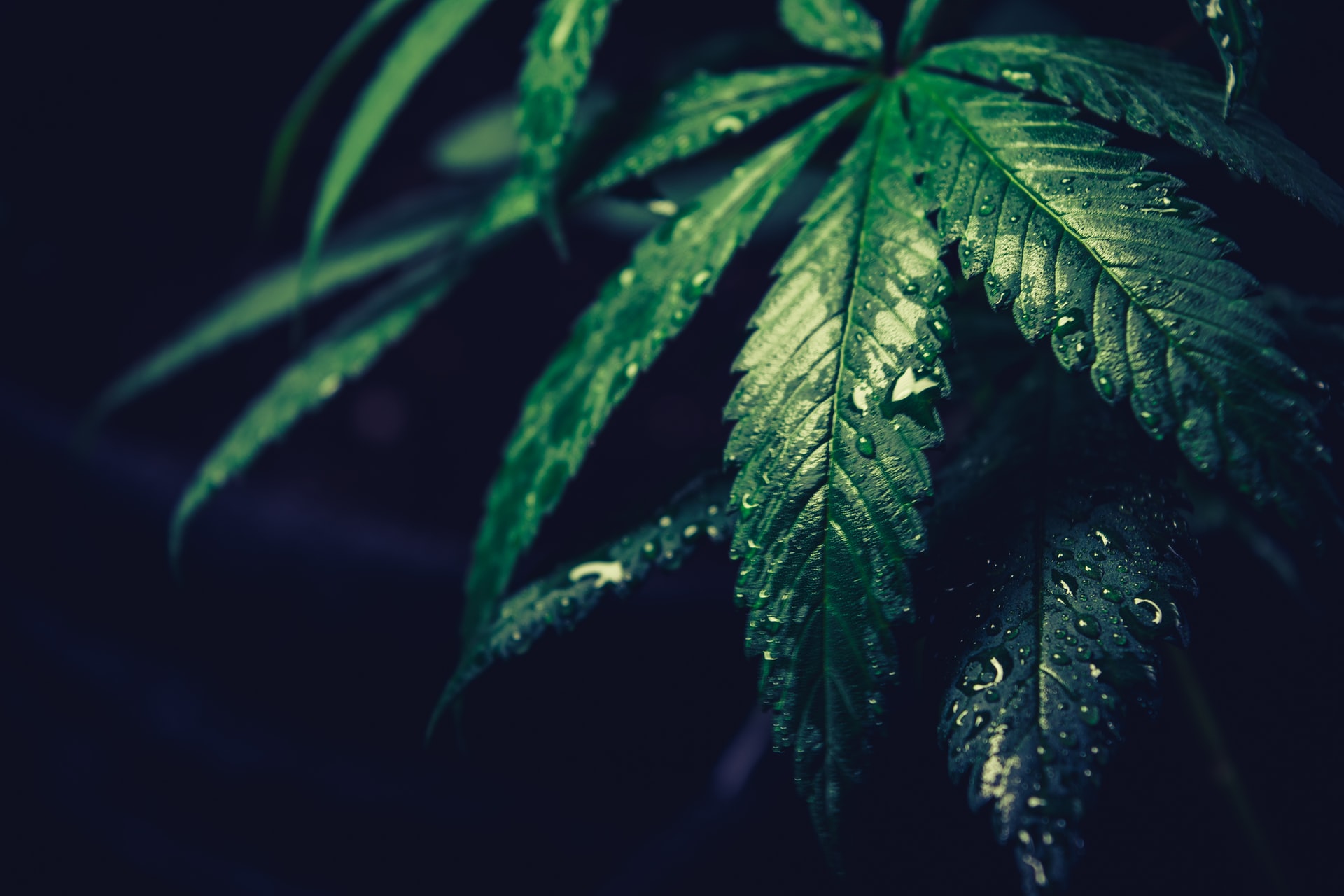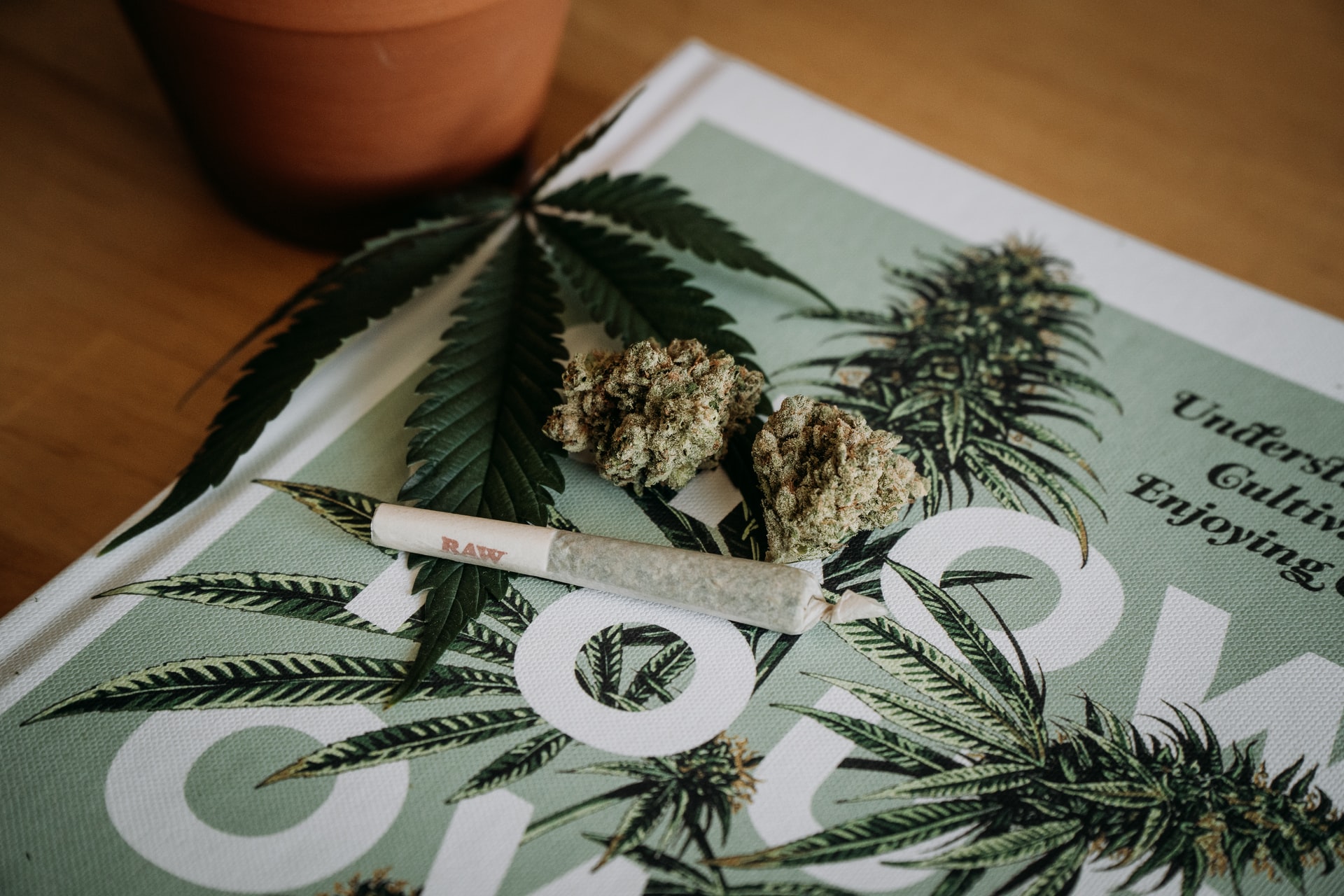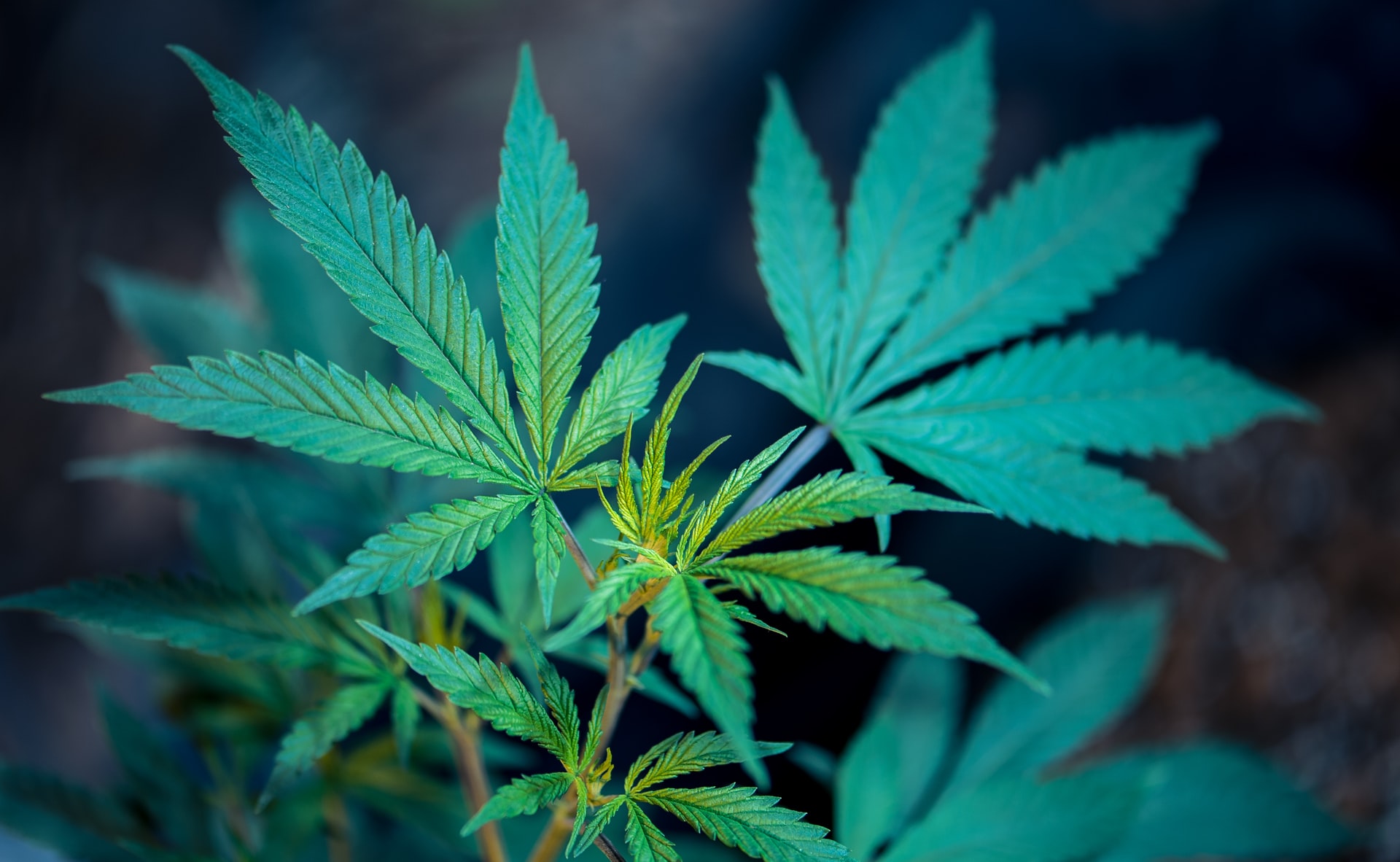While a hit of marijuana may make things feel a bit less confusing, there’s no doubting that marijuana rules are complex. While recreational marijuana is allowed in nine states and the District of Columbia, this may entail anything from stores on every corner to a convoluted “gifting” system. And what about medical marijuana? In some areas, this means that anyone with a hurting foot can legally buy a bag of green, while in others, oils and tinctures are only available to seriously ill individuals suffering from diseases such as cancer, AIDS, or multiple sclerosis. Even in states where marijuana is still illegal, being caught with it can result in a parking ticket or a year in prison.
Confused? We were as well. With that in mind, here’s a quick rundown of pot laws by state in the United States.
Alaska
Adults 21 and older in Alaska can possess up to one ounce of marijuana and grow up to six plants for non-commercial reasons, but no more than three mature plants. It is illegal to smoke in public.
Patients enrolled in the state’s medical marijuana program can use marijuana to treat a variety of serious illnesses, including cachexia (wasting disease), nausea, and chronic pain, as well as cancer, HIV/AIDS, and multiple sclerosis. In Alaska, there are an estimated 1,178 registered patients.
Marijuana is produced indoors for the majority of the year due to weather conditions, prompting concerns about the energy effect of additional indoor lighting as the business grows.
Arizona
In Arizona, marijuana is banned, and possession of any amount is a felony. The state, on the other hand, has a robust medicinal marijuana economy, with 130 shops up for business. Cancer, glaucoma, HIV, AIDS, hepatitis C, and agitation from Alzheimer’s disease patients are allowed to take two and a half ounces of marijuana. A huge majority of the estimated 152,979 registered patients suffer from chronic discomfort.
The best online weed dispensary law in Arizona does not require testing for contaminants, leaving consumers vulnerable to marijuana contaminated with molds and pesticides.
Alabama
In Alabama, marijuana is prohibited – a single joint may result in a year in prison – and there is no medical marijuana program, however the use of CBD for epilepsy is approved in research trials.
Arkansas
In Arkansas, possession of less than 4 ounces of marijuana is unlawful, and first-time offenders can face up to a year in prison. A medicinal marijuana program is in the works, but producer licensing has been temporarily halted due to a court injunction. Patients with a variety of diseases, including PTSD, will eventually be eligible for medicinal marijuana, and they will be able to buy 2.5 ounces from a dispensary every 14 days.
 California
California
Marijuana is legal for recreational use in California. Adults 21 and older can possess up to one ounce of marijuana, but selling any amount is still a misdemeanor punishable by up to six months in prison. Adults have the ability to grow up to six plants.
A medicinal marijuana program precedes the legalization of marijuana in the state. Any disabling ailment for which medical marijuana usage has been “deemed acceptable and advised by a physician” qualified patients for medical marijuana use, and patients could acquire as much marijuana as they needed. The amount of marijuana that can be cultivated for personal medical use is unrestricted by state law.
During the wet winter season, commercial producers are needed to store water. However, unless officials keep a close eye on growers, they may be enticed to divert water from streams, putting salmon in the area in jeopardy. Meanwhile, illegal grow operations in California’s woods continue to be a menace to the environment. A group of researchers discovered signs of toxic chemicals and human waste at illicit grow facilities near rivers only last year.
Colorado
Adults over the age of 21 in Colorado are allowed to possess up to an ounce of marijuana and can share it with others. They have the ability to grow up to 6 plants.
Patients can register for a variety of ailments, including cachexia, cancer, and PTSD, under the state’s medical cannabis statute, which limits use to two ounces. There are currently 93,372 patients registered with state-licensed dispensaries.
With the approval of Amendment 64, critics say the state squandered a key opportunity to build an environmentally sustainable sector. Energy demand in Denver surged several years following legalization, as did water use in the drought-stricken state.
Denver has produced a best practices working document, which includes guidelines for water recycling (water recapture and reuse) and organic waste management, such as composting and Bokashi fermentation, a waste pickling method.
Connecticut
Although possession of small amounts of marijuana is illegal in Connecticut, it has been decriminalized. The civil penalties for the first and second crimes of less than a half-ounce are $150 and $200 to $500, respectively.
With 25,565 persons now enrolled and an extensive list of qualifying ailments ranging from cancer to PTSD, the state has a legal medicinal marijuana program. (Albinism was refused as a qualifying condition by the board of physicians in February.)
In the state, there are nine dispensaries and 861 physicians registered with the program. The state has four producers who are properly registered.
Delaware
Although recreational use of marijuana is illegal in Delaware, it is decriminalized, thus anyone caught with up to one ounce is fined $100 instead of facing jail time. Minors who use marijuana in public or in a moving vehicle, however, may face criminal prosecution.
The medicinal marijuana program in the state is rapidly expanding, with a 231 percent increase in registration cards issued in fiscal year 2017 compared to 2016. Cancer, PTSD, and autism are examples of qualifying conditions. Severe pain, muscle spasms, and malignancy are the three most common conditions.
Delaware requires dispensaries to test their cannabis products, but it does not explicitly prohibit pesticide use.
Florida
Marijuana is prohibited in Florida, and possession of 20 grams or less can result in a year in prison.
Patients suffering from cancer, muscle spasms, and seizures are authorized to use cannabis strains containing ten percent or more CBD and no more than eight-tenths of one percent THC under the state’s medicinal marijuana program. Patients who are near death can acquire THC-rich strains. There are roughly 26,968 patients who have registered.
Critics contend that expanding Florida’s medical marijuana program would raise the state’s carbon footprint by requiring more energy. They also worry that larger-scale farming will jeopardize the state’s 29 major water bodies, especially the Everglades.
Georgia
Marijuana is still strictly prohibited in Georgia. First-time offenders, on the other hand, may be eligible for probation rather than jail (the probation might include mandatory drug treatment). Although this is a significant step toward decriminalization, it should be highlighted that due to court dates, costs, and other requirements, probation may be much more onerous than incarceration in many circumstances.
The state’s medical marijuana program is very limited, allowing only 20 ounces of infused cannabis oils with no more than 5% THC. AIDS, seizures, and Tourette’s syndrome are among the qualifying conditions. PTSD and chronic pain are being pushed to be added to the list of qualifying disorders by advocates.
 Hawaii
Hawaii
For first-time offenders, Hawaii allows for conditional release or diversion. If a person successfully completes probation, their record is expunged.
Patients are allowed to have four ounces of usable marijuana, excluding seeds, stalks, and root, under the state’s medical marijuana statute. Patients are only allowed to grow seven plants at a time. There were 20,869 valid patients as of March 2018.
People who produce marijuana should employ low-energy lights and no-till, organic gardening, according to a Hawaii-based cannabis advocacy group.
Idaho
Idaho has some of the harshest marijuana restrictions in the country. If caught with less than 3 ounces of marijuana, they might risk a year in prison. Possession of more than 3 ounces of marijuana can result in a five-year prison sentence. In 2016, more over 4,000 people were detained in the state for marijuana possession.
Idaho does not have a medicinal marijuana program, but campaigners are working to have CBD oils legalized.
Illinois
Small amounts of marijuana have been decriminalized in Illinois. A civil violation is defined as ten grams or less, with a fine of $200 and no jail time.
Tourette’s syndrome, traumatic brain injury, and fibromyalgia are among the qualifying conditions for the state’s legal marijuana program. There were 21,800 patients recorded in 2017. There are 54 dispensaries licensed by the state.
Growers in Illinois are required to give sufficient pesticide training to their staff, as well as a strategy for water flow and waste disposal.
Indiana
Possession of even a tiny amount of marijuana is a misdemeanor that carries a sentence of up to 180 days in prison. CBD oil is permitted in the state for those with severe epilepsy.
Iowa
Possession of a minor amount of marijuana on a first offense is a misdemeanor punishable by up to six months in prison, while diversion is an option.
For patients with serious diseases including intractable epilepsy, terminal sickness, or untreatable pain, only small quantities of CBD oil are permitted. There are presently no state-licensed dispensaries in operation, although the state is accepting applications.
Kansas
Possession of any amount of marijuana is punishable by a six-month prison sentence. In March 2018, the Kansas House of Representatives narrowly rejected a medicinal marijuana program.
Kentucky
Weed possession of less than 8 ounces is a misdemeanor punishable by 45 days in jail, however diversion is an option. If you’re caught with 8 ounces or more, you’ll be charged with trafficking, which carries a one-year term for first-time offenders and a one- to five-year sentence for repeat offenders. Legislators are considering whether or not to establish a medical marijuana program in the state.
Louisiana
Pot is banned, and first-time offenders who possess less than 14 grams face a 15-day sentence.
The Louisiana Pharmacy Board began issuing licences for medical marijuana businesses in April. Smokable marijuana is still illegal in Louisiana. The only agricultural centers that can grow medicinal marijuana are Southern University and Louisiana State University.
Maine
Adults over the age of 21 in Maine are allowed to possess 2.5 ounces of marijuana and grow up to six mature plants. In addition, the state has a robust medicinal marijuana program that treats a variety of diseases, including PTSD. Although Governor Paul LePage has pledged to reject legislation allowing for a regulated marijuana market, the first retail marijuana establishments are expected to open in the spring of 2019.
 Maryland
Maryland
In Maryland, recreational marijuana is prohibited, but possession of small amounts (less than 10 grams) has been decriminalized.
Maryland officially launched a medical marijuana program, four years after passing a medical marijuana law. Patients suffering from a variety of debilitating diseases, such as anorexia, extreme nausea, and seizures, can now access 34 state-approved dispensaries.
Massachusetts
Adults over the age of 21 in Massachusetts are allowed to possess an ounce or less of marijuana and grow up to six plants (12 per household). Marijuana stores will begin in July 2018. (MPP)
Patients with serious illnesses such as cancer, HIV/AIDS, and other ailments, as determined by a physician, are eligible to participate in the state’s medicinal marijuana program. There are 46,294 registered patients, and only a limited amount of home growing is permitted. The state has licensed dispensaries that are open for business.
The state’s Executive Office of Energy and Environmental Affairs has urged the Cannabis Control Commission to impose stricter environmental standards so that the state’s burgeoning marijuana industry does not significantly increase the state’s carbon footprint, calling for a cultivation space that uses only 36 watts per square foot.
Michigan
Getting caught with any amount of marijuana is a misdemeanor with a maximum punishment of one year, while diversion is an option.
Patients with Alzheimer’s, cancer, and post-traumatic stress disorder (PTSD) are allowed to possess two and a half ounces of useable marijuana. It is legal to grow up to 12 marijuana plants at home in a secure, enclosed environment. There are more than 218,000 patients on the waiting list.
Michigan, on the other hand, appears to be on the verge of full legalization. This November, a voter referendum on recreational marijuana will appear on the ballot, and it is predicted to pass. More information about the legislation can be found here.
Minnesota
Possession of less than 4.5 grams is a misdemeanor that carries no penalty. Some of the ailments covered under the state’s medicinal marijuana program include cancer, HIV & AIDS, PTSD, and intractable pain. There are an estimated 8,075 patients registered.
Mississippi
Mississippi has decriminalized the possession of small amounts of marijuana – possession of 30 grams or less is not punishable. CBD oil for intractable epilepsy is the only medical marijuana product available in the state.
Missouri
A first-time possession charge of less than 10 grams is a misdemeanor, which normally does not result in jail time. CBD oil for intractable epilepsy is the only medical marijuana product available in the state.
Montana
Marijuana possession of 60 grams or less is a misdemeanor punishable by up to six months in prison. For cancer, chronic pain, and Crohn’s disease, the state maintains a medical marijuana program. Over 21,000 people have signed up.
Nebraska
Pot has been partially decriminalized in Nebraska: a first offense for possession of one ounce or less is an infraction that does not carry a jail sentence. There is no medical marijuana program in the state. In a poll conducted in February, 77 percent of respondents said they would support a medical marijuana program.
Nevada
Marijuana is now legal in Nevada, and anyone over 21 can possess up to one ounce of the drug. They can even share their marijuana with others, but selling more than one ounce of marijuana is still illegal. Adults who reside more than 25 miles from a merchant can also grow 6 marijuana plants. There are 62 dispensaries and 205 growing and manufacturing sites around the state.
There are around 21,700 registered patients in Nevada’s medicinal marijuana program, who use the medicine to treat a variety of ailments ranging from AIDS to PTSD. They are allowed to grow a total of 12 plants.
The city of Las Vegas prefers applicants that want to construct green structures. For years, medicinal marijuana dispensaries have been required to submit a detailed environmental plan to the city’s environmental officer, detailing how they will manage hazardous materials and trash.
New Hampshire is a state in the United States.
New Hampshire has decriminalized marijuana to some extent. Possession of three-quarters of an ounce is a civil offense with no criminal consequences. New Hampshire legislators are considering legalization, but a recent bill in the state’s House has stalled.
People with serious illnesses like AIDS, cancer, and PTSD can get two ounces of legal marijuana under the state’s medicinal marijuana program. It is not legal to cultivate marijuana at home. The program now has 3,493 patients registered.
New Jersey is a state in the United States.
Despite the fact that marijuana is currently illegal in New Jersey, the state’s new governor, Phil Murphy, has stated that he supports legalization. Currently, if you have 50 grams or less, you can be charged with disorderly person and face up to six months in prison.
The state includes medical marijuana as an addiction substitute therapy for opioid reduction, in addition to the usual serious conditions that qualify patients for medical marijuana. Two ounces of marijuana are allowed every month for the state’s 18,574 registered patients.
Pesticides are no longer allowed to be used in marijuana production in New Jersey.
New Mexico is located in the United States.
In New Mexico, possession of one ounce or less of marijuana is illegal, and the first violation carries a 15-day jail sentence. A one-year penalty is possible for a second violation.
Patients with a wide range of illnesses, from cancer to Parkinson’s disease to PTSD, are allowed to use medicinal marijuana in the state. Patients are allowed to consume eight ounces of marijuana over the course of 90 days, and home growing of up to 16 plants is permitted. A total of 50,954 patients have been enrolled thus far. The most prevalent qualifying diagnosis is post-traumatic stress disorder (PTSD), which is followed by cancer and severe pain.
New York is a city in the United States.
Possession of small amounts of marijuana has been decriminalized in New York. A punishment of $100 is imposed for a first infraction of 25 grams or less, and a fine of $200 is imposed for a second violation.
The medical marijuana statute in New York restricts patients to non-smokable products. It is not permitted to cultivate cannabis at home. ALS, cancer, severe pain, and PTSD are among the qualifying conditions.
Cynthia Nixon, a gubernatorial contender, has stated her support for legalization, urging current Governor Andrew Cuomo, a staunch opponent of marijuana legalization, to do an official study on the impact legalization would have on New York.
North Carolina is a state in the United States.
Although possession of tiny amounts of marijuana remains unlawful in North Carolina, it has been decriminalized: a half-ounce or less can result in a maximum punishment of $200. The state has approved CBD oil for the treatment of intractable epilepsy. In February, members of Congress submitted a plan to legalize medical marijuana.
 North Dakota is a state in North America.
North Dakota is a state in North America.
In North Dakota, possession of one ounce or less of marijuana can result in a 30-day jail sentence, however diversion is an option.
Agitation from Alzheimer’s disease or related dementia, ALS, cancer, chronic or debilitating sickness, and PTSD are among the diseases that qualify users for medical marijuana. It is not permitted to cultivate cannabis at home. Patients are allowed to smoke marijuana with the permission of their doctor. However, no state-licensed dispensaries are currently open, and no patients have been registered.
Ohio
In Ohio, possessing less than 100 grams of marijuana is a misdemeanor punishable by a $150 fee rather than a criminal penalty.
Patients with a long list of illnesses, including AIDS, Alzheimer’s, and traumatic brain injury, are allowed to consume marijuana medicinally under the state’s medical marijuana program. There are currently no state-licensed dispensaries in operation, and home growing is not permitted. The first manufacturing plants are expected to begin this fall.
The Ohio Medicinal Marijuana Control Program, the state body in charge of medical marijuana implementation, has requested that producers include organic labels on their products. They also advocate for marijuana trash to be composted.
Oklahoma
Oklahoma has some of the toughest marijuana laws in the country. A year in prison awaits even a first-time offender caught with any amount. Governor Mary Fallin modified a man’s life sentence for drug trafficking from life without parole to life with parole in 2017.
The state allows CBD oils to be used to treat pediatric epilepsy.
Oregon
Oregon has legalized marijuana for personal use by adults. Medical marijuana had been legal in the state for a long time, with a wide spectrum of conditions qualifying patients, including PTSD. Users can have up to 24 ounces of usable cannabis and grow up to six mature plants if they are registered. A total of 61,867 persons are expected to take part in the program.
Critics worry that, like other states with big-scale legalization, Oregon’s waterways would be harmed by trash and other waste items from massive grow operations. Pot agriculture, according to a paper submitted to the Oregon senate, would consume significantly more water than, say, a wine grape.
Pennsylvania
In Pennsylvania, if you have 30 grams or less, you will be sentenced to 30 days in prison. The state’s medicinal marijuana program covers a wide range of ailments, including opioid addiction. Although home production is prohibited, state-licensed dispensaries are actively operating.
Rhode Island is a state in the United States.
In Rhode Island, possession of less than one ounce of marijuana is not punishable, but it is still unlawful. In the fall, lawmakers may discuss repealing prohibition.
The state’s medical marijuana program allows for two and a half ounces of marijuana and the indoor cultivation of 12 plants.
South Carolina is a state in the United States.
First-time offenders caught with one ounce or less face a 30-day jail term, however diversion is an option. For Dravet Syndrome, Lennox-Gastaut Syndrome, and refractory epilepsy, the state has enacted CBD legislation.
South Dakota is located in the United States.
Marijuana is banned and carries severe consequences: possession of two ounces or less can result in a year in prison.
This fall, a medical marijuana law is expected to be on the ballot, despite the ailments it would treat are quite serious.
Tennessee
Even first-time offenders can face a year in prison if they use marijuana in Tennessee.
CBD oil can be used to treat seizures, according to the law.
Texas
Possession of two ounces or less can result in a 180-day prison sentence. Although the state has enacted a CBD oil law, the program is severely limited by the fact that physicians are required to write a prescription, putting them at danger of federal enforcement.
Utah
In Utah, marijuana is prohibited. Six months in prison can be imposed for less than one ounce of marijuana.
A medical marijuana initiative could go on the ballot this autumn, however it’s uncertain whether it will have enough support to pass – the influential Church of Jesus Christ of Latter-Day Saints now opposes the plan, which could lead to its failure.
Vermont
Vermont has made it legal to possess small amounts of marijuana for personal use. The state’s medical marijuana statute permitted people suffering from a variety of diseases, including PTSD, to possess up to two ounces of usable marijuana. At home, you can grow up to nine marijuana plants.
Virginia
In Virginia, marijuana is prohibited, yet there is a push to legalize it. The usage of CBD and THC-A oils is currently restricted under Virginia’s medical marijuana program. In March, Governor Ralph Northam broadened the definition of a qualifying condition to include any confirmed illness.
Washington
Small amounts of marijuana for personal use are now legal in Washington. The state’s medical marijuana statute covers a wide range of ailments, including post-traumatic stress disorder (PTSD). Home cultivation of medical marijuana is legal if the patient registers with the state, however cultivating plants for recreational purposes is not.
The state’s Department of Ecology has issued instructions on how to keep the environment safe, including how to regulate odor in the air and consider any waste containing 10% THC as harmful, just like fluorescent lights or spent batteries.
 Washington, D.C. is the capital of the United States.
Washington, D.C. is the capital of the United States.
In 2014, voters in the nation’s capital approved a ballot measure that made recreational, adult-use marijuana legal. But little has changed since then: Congress, which controls how D.C. spends its money, ruled that it couldn’t spend any of its budget on enforcing the new legislation, leaving legal marijuana in limbo. Residents have circumvented this problem by establishing “gifting” markets, where items are sold for roughly the same price as weed, with the pot thrown in as a bonus. Adults are allowed to possess up to two ounces of marijuana and grow up to six plants, but having more than that is a misdemeanor that can result in a six-month jail sentence.
The district has a medical marijuana program, but it only allows patients to possess two ounces of marijuana, which is the same amount allowed under recreational law.
West Virginia is a state in the US.
If you are discovered with any amount of marijuana, you could face a sentence of 90 days to six months in prison. Although the state has a medical marijuana program, there are presently no state-licensed dispensaries in operation.
Wisconsin
Any amount of marijuana is punishable by six months in prison, even for first-time offenders. The usage of CBD oil is legal in the state.
Wyoming
Marijuana use or being “under the influence” is a misdemeanor in Wyoming, punishable by up to six months in prison. In fact, the legislature is mulling stiffer punishments for marijuana possession, including making possession of three grams of flower a crime. Although the state approves the use of CBD oils to treat seizures, it has not made them more accessible.




